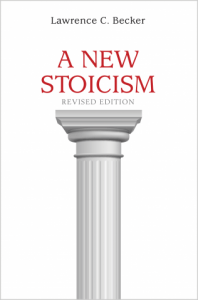
A cognitive corollary of Kuhn’s question is, “What must we humans assume the world be like, in order that we may know it?” James Woodward’s work on invariance has opened up several lines of inquiry into an answer to this question. I, for one, have benefitted in my work from his perspective. His key proposal, as I see it, is: we humans, and perhaps any intelligent cognitive system, biological or artificial, that supports adaptive functioning in this world, must assume that there are invariant cause-and-effect relations in the world, amidst things and events that are inexorably changing. If a causal relation changes from the moment one induces it to the moment one applies it, that knowledge would be useless. Causation With A Human Face (CHF) brings together theories and evidence from a truly wide array of disciplines, both descriptive and normative, in support of his proposal. As old as the concept of invariance may be, the interest that Woodward’s work attracted to it, and the insights and findings in his and other’s work on the topic, are new.
The typical flow of insight on rationality has been from explicit formal analyses to everyday intuitive thinking. Introductory psychology courses teach the many ways intuitive reasoning is riddled with biases. Work on invariance may show that insight can flow in the opposite direction. My guess is that which direction insight flows depends on whether rationality in a cognitive process has been crucial to the survival of the species during evolution. The invariance assumption is both rational and crucial.
The broad set of arguments and evidence brought together in CHF suggests that evolutionary had a reason for human causal reasoning to be so pervasively motivated and enabled by the concept of invariance. The crucial role played by causal invariance in the construction of generalizable causal knowledge raises some questions: are current normative statistical models rational for the goal of obtaining generalizable causal knowledge? Would they benefit from making the invariance assumption that humans make? Statistical models such as logistic regression often applied as a default to analyze data involving a binary outcome (e.g., whether a tumor is malignant or not, whether a patient is pregnant or not) do not make the causal invariance assumption. Likewise, would artificial intelligence methods benefit from making that assumption, thus enabling them to revise their representations?
Woodward’s proposal shifts the goal of causal-knowledge formulation from the seeking of truth, which is dichotomous and objective, to the attainment of greater generalizability, which is a matter of degree and subjective in the sense of being a constraint imposed by the reasoner’s need to best achieve desired outcomes. This shift does not merely mean that the reasoner pays attention to generalizability. The psychological literature extensively reviewed and closely examined in CHF shows how this subjective goal shapes both the way humans acquire causal knowledge and the way they use that knowledge. As the psychological work covered in Chapters 4 and 7 of CHF shows, this shift of the goal—when incorporated into a computational model in terms of an assumption of the invariance of the causal strength of a candidate cause to influence a target binary outcome (e.g., having an allergic reaction or not) across contexts differing in background causes—leads to causal conclusions about the world that differ from those following from models that omit that assumption. The sameness of causal strength is taken as an indication that the causal mechanism operates the same way. Results from discriminating experiments testing intuitive causal judgments are in accord with the implicit adoption of that assumption. Even preschool children seem to make that assumption. (Inference regarding the causes of a binary outcome best reveals the difference between models that do and do not make the assumption.)
“What must nature, including man, be like in order that science be possible at all? … What must the world be like in order that man may know it?”, the philosopher of science Thomas Kuhn (1962/2012, p. 172) asks in the final paragraph of his book, The Structure of Scientific Revolutions.
Because causes are often not invariant across contexts differing in background causes, assuming invariance across contexts may seem simplistic or wishful. Not so, because candidate causes are not fixed concepts. They are representations of nature that are ours to formulate. When the observed outcome deviates notably from the outcome expected under the invariance assumption, the deviation provides a signal to the reasoner indicating a potential need to revise current empirical knowledge toward greater causal invariance.



